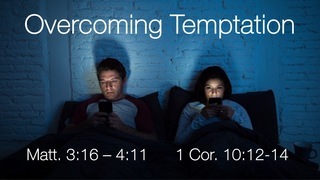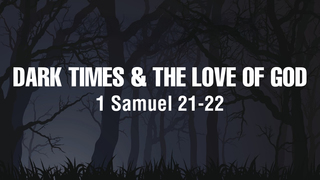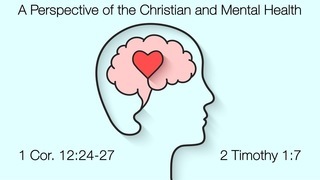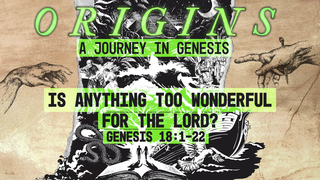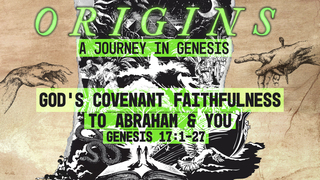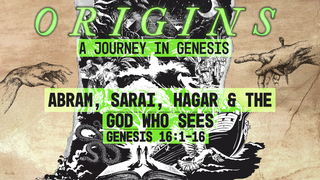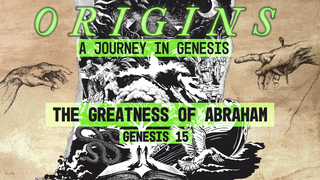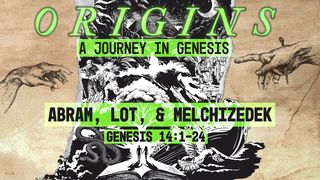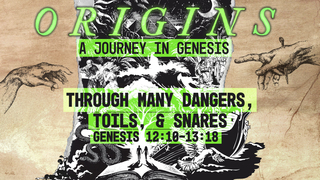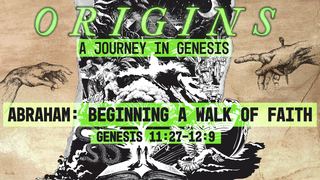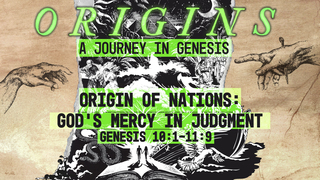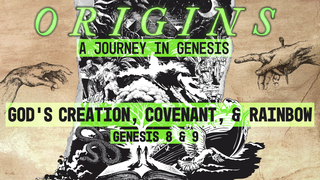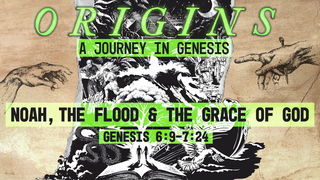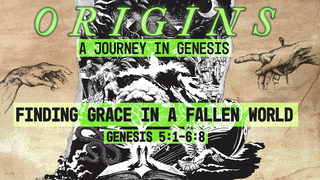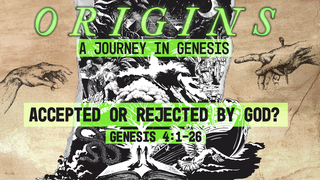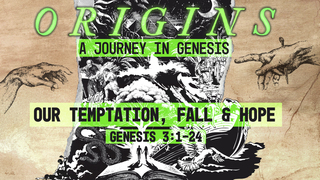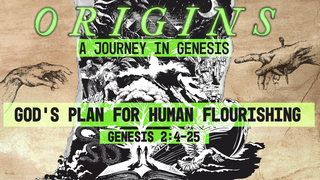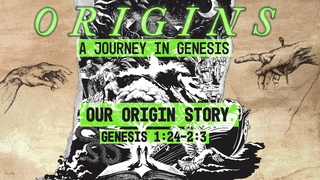Discover ReGeneration Church
ReGeneration Church

ReGeneration Church
Author: ReGeneration Church
Subscribed: 28Played: 94Subscribe
Share
© http://theregenerationchurch.com
Description
This podcast features the Sunday morning teachings of Pastor Matt Valencia from ReGeneration Church in Scotts Valley, California.
ReGeneration Church exists to cultivate a community of disciples who respond to the Gospel by growing in relationship with Jesus and intervening for Him.
ReGeneration Church exists to cultivate a community of disciples who respond to the Gospel by growing in relationship with Jesus and intervening for Him.
1325 Episodes
Reverse
After the destruction of Sodom, Lot and his daughters retreated to a cave where fear and isolation lead to sin. Meanwhile, Abraham misleads others about Sarah, using the same lie that he used before, knowing fully well that it did not work out the way he expected it to before. Despite the lies, consequences were averted through God's intervention. In moments like this where recurring choices are echoing past mistakes, we can ask ourselves, what patterns do we carry with us even when we think we've left them behind?
In Matthew, when Jesus rises from the water at His baptism, the heavens open and God affirms Him as His beloved Son. In 1 Corinthians, Paul reminds the Church that confidence in standing strong can be dangerous without vigilance. Temptation is a reality for everyone, but God always provides a way out so that endurance is possible. The call is not to boast in strength, but to flee what entangles and lean on God’s faithfulness. What would change if we saw temptation as a warning light instead of an invitation?
David flees from Saul and finds refuge among strangers, hungry and desperate, receiving bread from the priests at Nob. Saul’s paranoia erupts into violence, and he orders the slaughter of the priests who dared to help David. David escapes with only a handful of followers, carrying grief but still clinging to God’s guidance. How do we live faithfully when the cost is high?
This message discusses mental health through the lens of Scripture and the hope we have in Christ. God places us in one body, where each part is honored and cared for (1 Corinthians 12:24–27). He also gives us not a spirit of fear, but of power, love, and self-control (2 Timothy 1:7). Join us as we seek hope, healing, and the peace that only Jesus gives.
Abraham looks up from his tent and sees three men standing nearby, so he hurries to welcome them with water, shade, and a meal. Without knowing their full purpose, he spares no effort in serving them with care and respect. As they eat, one of the visitors speaks a promise that Sarah will bear a son within the coming year. Hearing this from inside the tent, Sarah laughs quietly to herself at the thought because of her old age. Could our faithfulness in small acts be a greater act of worship than we think? Could God's goodness be greater than we imagine?
When Abram is ninety-nine years old, the Lord appears to him and reaffirms His promises, giving Abram the new name Abraham to mark his role as the father of many nations. Sarai’s name is also changed to Sarah, and she is told she will bear a son despite her old age. God establishes a lasting sign of His promises through the rite of circumcision for Abraham and his descendants. In what areas of life might God be calling you to a deeper level of trust?
Sarai, unable to bear children, gives her servant Hagar to Abram, and Hagar conceives. Tension rises between the two women, and Hagar runs away into the wilderness. There, the angel of the Lord meets her, promises blessing for her son, and reminds her that God has not overlooked her suffering. How do we handle the tension between pursuing our own desires and trusting God’s timing?
God reassures Abram of His promise, even as Abram wrestles with having no heir. In response, Abram believes the Lord, and his faith is counted as righteousness. God formalizes His covenant through a solemn ceremony involving Abram’s sacrificial offering and a vision of a smoking firepot and blazing torch passing between the pieces. How do we trust God’s promises when the waiting feels endless?
Caught in the crossfire of a regional war, Lot is taken captive along with the spoils of Sodom. Abram gathers a small force, defeats powerful kings, and rescues his nephew without claiming any reward. On his return, a mysterious priest-king greets him with bread, wine, and a blessing. How does conflict reveal what you truly value?
Famine drives Abram to Egypt, where fear leads him to misrepresent his relationship with Sarai. After a tense encounter with Pharaoh, they return to the land God had shown them. From a high place, Abram looks over a land stretched wide in every direction, a future marked by promise but not without challenge. As he builds another altar, the path ahead remains uncertain but deliberate. What choices do we make when uncertainty tempts us to take matters into our own hands?
Abram leaves everything familiar behind, trusting a promise he can’t yet see. As he travels through unfamiliar lands, he builds altars at each stop, marking his journey with worship. God's words guide him forward, and his steps echo obedience more than certainty. In a world driven by plans and outcomes, how do we move forward trusting in God?
Genesis 10 traces the family lines of Noah’s sons—Shem, Ham, and Japheth—after the flood, showing how their descendants spread across the earth. Nations and regions take shape as clans grow and settle in various lands, each with its own language and identity. It marks the rise of powerful cities with rulers like Nimrod, a mighty warrior and kingdom-builder. What legacy are we building for future generations who will trace their roots through us?
As the floodwaters receded, Noah stepped onto dry ground and built an altar, offering thanks to God. In response, God made a covenant never again to destroy all life by flood, setting the rainbow in the sky as a lasting sign of this promise. Humanity was given a fresh start, with a renewed call to fill the earth and live with reverence toward the Creator. Yet even in this new beginning, human weakness remained. How do we live in light of God's promises when the world around us still feels broken?
Noah stood out in a corrupt world, walking faithfully with God when no one else would. As judgment approached, he obeyed every command—building the ark, gathering the animals, and entering with his family just as the rains began. The floodwaters rose, wiping out every living thing outside the ark, yet Noah and those with him were kept safe. What does it mean to trust in God when the world is falling apart?
From Adam to Noah, generations passed, each marked by death—until one man, Enoch, walked with God and was taken up. As people multiplied, so did their wickedness, and the earth grew increasingly corrupt. God saw that human hearts were bent only toward evil, and He regretted making them. Yet in the midst of the brokenness, one man found favor in God’s eyes—Noah. How do we find the courage to stand up for what is right in a world that tells us to choose what is wrong?
Cain and Abel brought offerings to the Lord, but only Abel’s was regarded with favor. In anger, Cain lured his brother into a field and killed him, leading to a curse and a life of wandering. God gave Adam and Eve another son, Seth, through whom people again began to call on God. What causes one offering to be received while another is refused? What—and how—do we offer to the Lord?
In the Garden of Eden, the serpent questions God's command, leading Adam and Eve to eat from the tree of the knowledge of good and evil. Their eyes are opened to their nakedness, and shame enters the world. God searches for them sorrowfully, and warns them of the pain, toil, and brokenness that will result from their choice. He clothes them and sends them away from Eden. Even in judgment, is there a promise of mercy?
Genesis 2:4–25 recounts the creation of man and his placement in the Garden of Eden, a lush and well-watered land. God forms Adam from dust and breathes life into him, assigning him the task of tending the garden and naming the animals. Seeing Adam alone, God creates a suitable companion by forming Eve from one of his ribs. The two live together without shame, united as one flesh. When given the freedom to choose, how do we determine what is “good?”
God brought forth living creatures to fill the earth, each according to its kind, and declared them good. He then created mankind in His image, giving them responsibility over all living things. On the seventh day, God rested from His work, blessing the day and setting it apart. If the world began with such intention and care, what does that say about our place within it?




